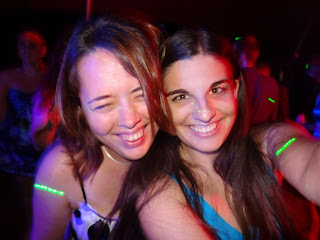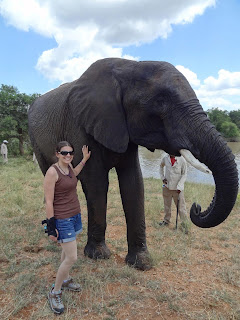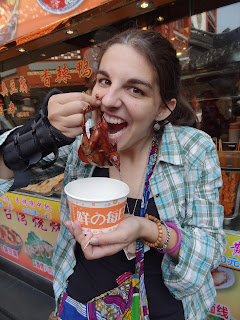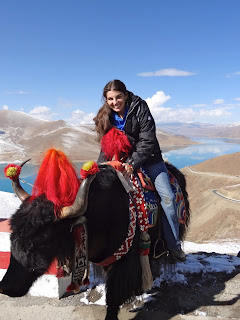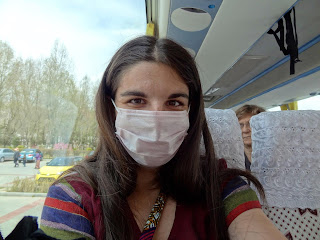In a previous post, I gave a general overview of adrenal insufficiency, and in this post I'm going to write about my personal experiences with AI.
 |
| Image Source |
My AI Origin Story and History
Through as series of medical mistakes, misdiagnoses, and misadventures, I was put on high doses of steroids that I didn't actually need for several months in 2017. This confused my already fragile hypothalamic-pituitatry-adrenal axis into slacking way the hell off. I had a minor surgery for a congenital defect in my neck and had the joy of experiencing my first adrenal crisis the next day when my cortisol suppressed body couldn't cope.
 |
| My body's reaction to stress |
Adrenal crises are always scary, but this one was especially so because I didn't know what was going on. It felt like I was going crazy and had the worst flu ever and a was in a horrible dysautonomia episode. Luckily I had enough brain cells still firing to pitifully whisper, "adrenal issues" over and over again in the ER and my mom took over explaining my complex medical history from there. I got the meds I needed, a 5 day hospitalization, and a shiny new diagnosis of secondary adrenal insufficiency (SAI). I went home very weak, but stable. Ish.
I thought I'd be good to go after that and would wean back off steroids like I have dozens of times in the past. No such luck. It took me months to recover from that first adrenal crisis. Months of weakness, gaining tons of weight, and feeling generally sick. I found I was unable to stop the steroids, but at least through trial and error found a (relatively) stable daily basal dose of steroids.
Some people are able to take a few pills of steroids a day and go on with life as usual. I am not one of those people. I've never found managing my AI easy. I am more often too high or too low than just right in the steroids department.
Things did get better when I learned about some unconventional treatment options from an AI support group. In 2019 I switched from oral steroids to injectable steroids. It helped a ton, but there was an even better option. After exhaustive research, advocacy, and appeal letters to insurance I got an insulin pump that I could use to deliver the steroids. I could program the pump to deliver cortisol 24/7 and at the rates of a normal cortisol day curve. I could updose in minute increments in response to symptoms or activity. Big meal? Have a little updose. Get the flu? Easily increase my daily dose by 30%-50%. Stressful day full of doctor appointments? Here's a little bit of a bigger updose. It became much easier to mimic a functional adrenal gland.
 |
| Image Source |
I got so flipping healthy that I started volunteering in vocational rehabilitation with the intention of going back to work. Though I still found AI difficult to manage perfectly, I was doing pretty ok for a while.
In September 2021 my (relative) stability slowly degraded for as yet undetermined reasons. I went from going over a year without an adrenal crisis to having one every other month...then every month, then I was giving myself emergency injections a couple times a week and was in and out of the hospital. My yo-yoing between high and low cortisol symptoms became pretty extreme. My doctors think the AI instability is due to an infection somewhere in my body since I do get stable anytime I'm on strong antibiotics. (I also have wonky blood tests that suggest a chronic infection.) It could just as easily be any of my other health issues causing too much stress on my body though. Yay medical mysteries!
 |
| Not as fun as Dr. House made it out to be. Image source |
So that's where I am now. Prophylactic antibiotics have helped cut down on the instability, but not completely. I was just in the hospital with a crisis a month ago and am currently battling one at home. I'm seeing lots of specialists trying to figure out various other health issues with the hope that addressing some of them will help the AI become more stable.
 |
| Image Source |
Symptoms
Most people who know me know that my "adrenal issues" cause frequent hospitalizations and make me feel sick, but I usually don't talk a lot about what the actual symptoms are. Because I'm unstable, I have both high cortisol and low cortisol symptoms depending on the situation.
The high cortisol symptoms are slower to develop and usually less intense than low cortisol symptoms. They are more likely to happen as I come out of an adrenal crisis and am slowly weaning back down to my usual daily dose.
It's not fun to be on high doses of steroids. They impact your mood, skin, weight, hunger, energy, pain, etc. The general picture of high steroid me is a grumpy, tired, very weak, hungry person who feels like they have the flu.
 |
| And that super sexy steroid moon face. Image source |
It's also really hard to maintain adequate potassium levels, so I get a lot of nerve pain and other weird neuro symptoms like wonky vision and ringing in my ears. Usually I become so weak that I literally feel and move like I'm walking through jello instead of regular old earth air. The weakness has been a truly humbling experience. It's wild to have to rest between each step of getting dressed, for example. I need a lot of help to do pretty much everything when I'm that weak.
 |
| Image Source |
Occasionally, I'll have the pleasure of going a bit crazy from the steroids. Once when I was accidentally given 6x the dose every 3 hours for a few days due to a dosing equivalent miscalculation I even needed IV calm down meds. While terrible at the time, I now find my reenactment of The Exorcist hilarious. When I sheepishly told my doctor about it, he said I was lucky. He has had patients strip down naked and run/crawl through the halls of the hospital from steroids. I'm glad that all I get is fidgety and irritable. In my last round of the high steroid crazies I became very offended if anyone dared to speak to me. I'm sure I was a delight to be around.
 |
| Now I'm thinking that like 80% of horror movies are just people overmedicated with steroids. Image source |
The hunger is something else too. It's not like a fun kind of, "I'm craving cake," hunger or even the, "Hey it's about dinner time, let's eat," hunger, but this exhausting, never ending need to get out of a hypoglycemia episode where my hands are shaking, my vision is blurry, and my heart rate increases 15-20 beats per minute. And it's not even fun to eat because steroids give me a terrible bitter taste in my mouth. Where is the justice in that, I ask!
In addition to these fun things, high doses of steroids are going to cause a lot of problems in my future. I'll be much more likely to experience osteoporosis, type II diabetes, hypertension, obesity, cardiovascular disease, and frequent infections. Lifestyle choices can help mitigate this, but even with pretty healthy habits, I'm already slipping down this road in my mid 30's. I'm choosing to cope with this picture of my future by a combination of denial, living in the moment, and banking on medical advancements to fix me up in the future. So just like everyone else, basically.
 |
| Image source |
Even with a lot of high cortisol symptoms being pretty uncomfortable and unhealthy, I much prefer it to low cortisol symptoms. These ones can come on quickly, are more extreme, and more imminently dangerous.
The worst part is that I go a bit bonkers. High cortisol me is grumpy and sleepy, but low cortisol me is a brain bathed in panic juice. I can't settle down at all and nurture that Impending Sense of Doom doctors tend to actually take pretty seriously as it often precedes things like heart attacks. Pain is bad. Nausea sucks. But hours or days of panic...that's the worst. I thank my lucky stars that it's temporary and once treated, I get to go back to my regularly scheduled balanced brain chemicals.
 |
| Actual footage of my brain chemistry during a crisis. Image Source |
As my body starts to freak out and shut down, I'll have unstable blood pressure, a very high heart rate, GI cramping, nausea, electrical heart issues, lots of trouble breathing, rapid loss of blood volume, and moderate to severe pain. I also get...kind of dumb? It call it adrenal dementia and basically I just sort of forget how to do things. I'll be just as likely to lay down on the ground and stare off into space as get myself emergency meds. Or if I do get myself emergency meds, it will take me forever to sequence the steps and I am likely to make bad dosing decisions. The result of this is a loss of independence. I generally need people nearby to get me help if I start drifting off into la-la land.
I'm getting much better at catching low symptoms early and when they are more mild, which is great. I recently got a fitness tracker which has been providing some good data and advanced warning when things start slipping. I also have a very wonderful and attentive alert dog who will headbutt me or start aggressively licking my legs if I'm heading low. And my parents are almost as good at my dog at recognizing low cortisol symptoms. I have a good team supporting me.
 |
| My little hero |
To give you a picture of how bad I look by the time I get to the hospital, I usually am rushed through triage and into a room no matter how crowded the ER is. Once I even got to "cut" in line ahead of the guy who just came in on an ambulance with a heart attack. Yikes.
 |
| Image source |
Impact
As you can imagine, this has had a major impact on my life. It's really pushed me into an existence of minute by minute living. I have to be on constant alert for any change in symptoms. Since it's rare to have AI this out of control, I don't have as much help from doctors as I'd like. I have to make high stakes decisions without sufficient data, education, or experience. Which I find very stressful. And tiring. I swear, like 8 times a day I just sigh and say, "I'm just so tired."
I'm limited in what I can do because I can't really be alone and I have to stay close to local healthcare resources who are familiar with my treatment protocols. Even more than usual, I have to cancel plans last minute or not make them in the first place. I have great days and sometimes even a good week or two here and there, but most of the time I'm either recovering from or heading into an adrenal episode or some other health issue.
I've adapted by pursing more hobbies that I can pick up and put down easily. I'm taking online classes and continue to work a bit from home. I miss the in-person socializing, and just doing stuff in general, but whatever I can do from bed is a better fit for me right now.
The good news is that I don't expect things to be this difficult forever. I continue to follow leads and chip away at my health issues. Each thing that I can address gives me that much more stability. I am so far from exhausting all my resources. When I am overwhelmed wondering what the next steps should be, I remind myself that's a good thing because I still have options.
As a charmingly forgetful little blue fish once said...
 |
| Image Source |


























